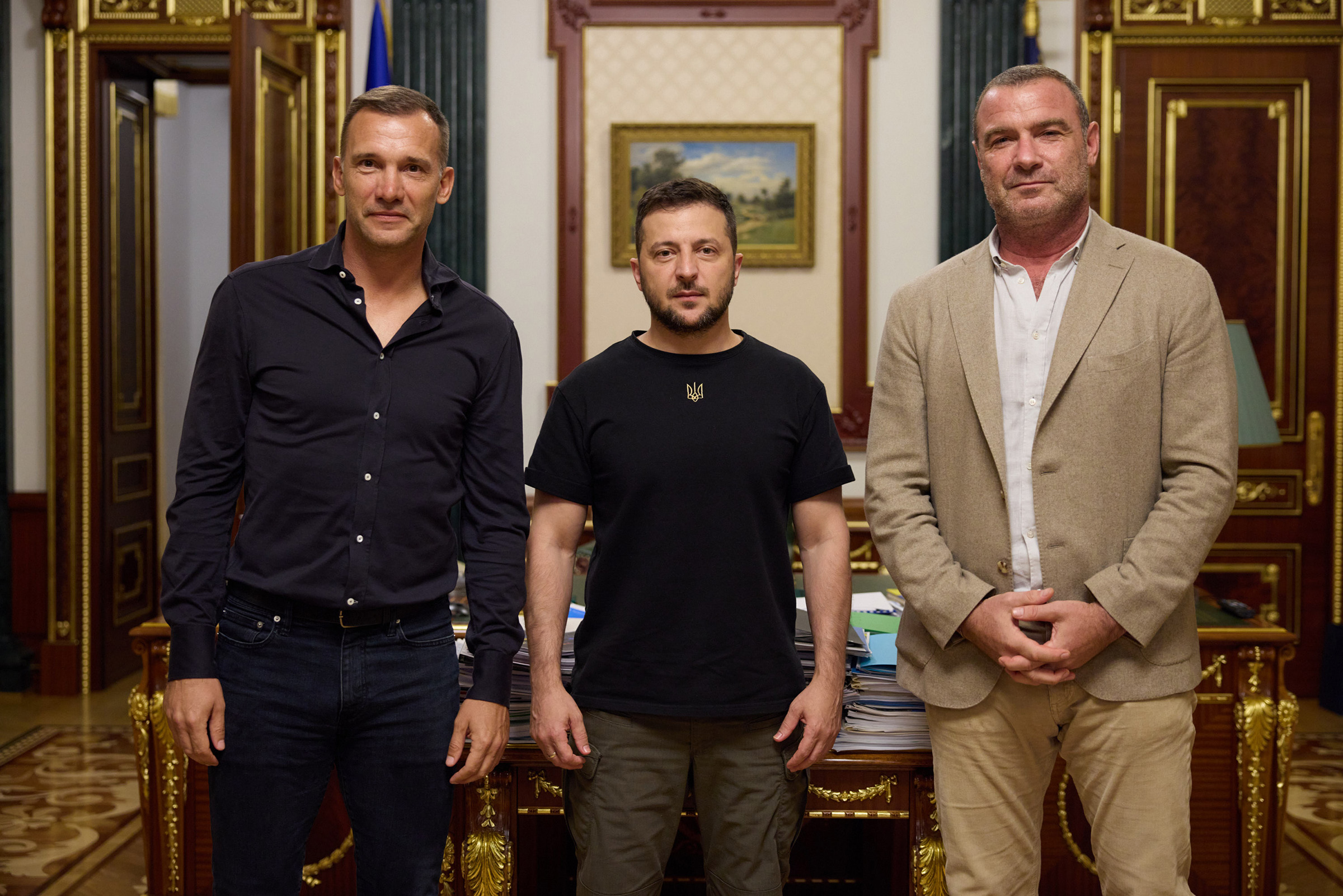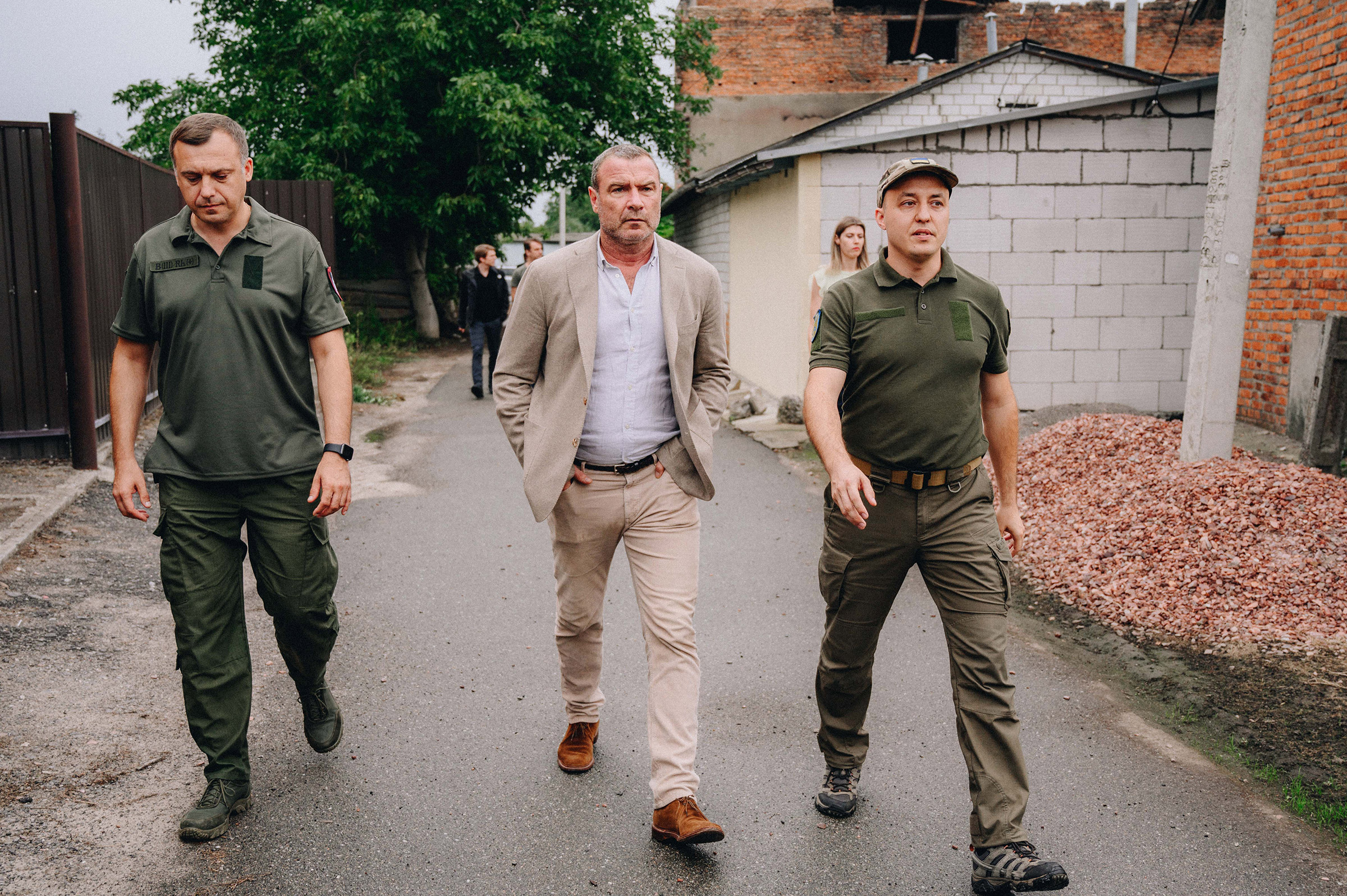When the war in Ukraine started two years ago, like a lot of people in this country, I was on the couch watching TV with my kids. I remember seeing a group of young fathers pushing back tears as they said goodbye to their families and boarded buses for the front line of a war in which they were wildly outnumbered and outgunned.
My own father had died earlier in the year, and a kind of emotional listlessness had set in that only got worse as I watched the war unfold on screen. I remember looking at my own children and wondering what it was like to be Ukrainian, if I had the kind of conviction it would take to say goodbye, not knowing if I would ever see them again. Or the courage to put my life on the line for nothing more than the very slim possibility that one day they might grow up in a free and democratic society.
I remember seeing big-boned, middle-aged Ukrainian men smoking cigarettes in the rain and thinking they looked a lot like my uncle Lou. For the most part, my mother’s parents and grandparents came to the United States from Kyiv and Odessa. I started to wonder what their lives had been like, bouncing from country to country, battered by the pogroms and then a series of devastating wars. Maybe that’s what it was to be Ukrainian? Always fighting for the future, your children, your children’s children.
I wouldn’t know. I’ve never had to fight for anything. Everything I have, I inherited: all the freedoms, security, and opportunities that for me define what it is to be American are a direct result of the conflicts and hardships my grandparents’ generation endured on my behalf.
Maybe that’s what I find so frustrating about the gaping political divide in this country. As I watch Republicans in the House of Representatives fail to take action on a foreign aid package that would deeply benefit Ukraine, it feels as if we have forgotten the cost of our own democracy. And with that, the shared values that should bind us together as Americans, a nation of grandchildren. Because let’s face it, that’s what we are. Whether they started out selling buttons and zippers in Odessa, or digging for diamonds in Angola, our families made the crucial decision to come here, the number one destination in the world for anyone looking to improve their station in life. And they did that so their children and their children’s children might one day be afforded the freedoms and opportunities we have come to take for granted. This founding American value is exactly what the people of Ukraine have been fighting and dying for: the inalienable right to self-determination.
Amid the existential threat posed by Russia, Ukrainians have endured their cities and towns being razed to the ground, their children abducted, their sons and daughters killed and maimed on the battlefield, and their language and culture banned in Russian-occupied territories. Entire communities in the eastern front lines continue to endure daily pummeling. Even away from the eastern front, millions face the constant risk of bombardment. And nearly four million have fled their homes and remain displaced within the country.
Children have lost family members and classmates, homes and schools. Thousands are still being held in Russia, where they are being indoctrinated to support Russia’s brutal campaign against their homeland and told their families have forgotten them.
Millions of Ukrainians are dependent on outside assistance to survive—the very lifeline the U.S. aid package is meant to sustain.

In my trips to Ukraine over the past two years, I’ve had the privilege of witnessing firsthand the courage and ingenuity of the Ukrainian people, evident not only on the battlefield but also in their relief efforts across the country. Several weeks after watching those fathers head off to war on the news, I joined up with some old and new friends to co-found BlueCheck Ukraine, an organization focused on identifying, vetting, and fast-tracking funding to local Ukrainian organizations. We have supported more than 27 organizations so far, including a traveling orchestra that delivers vital first-aid supplies and a construction company that pivoted to become an emergency food distributor for besieged communities. Hundreds more organizations like these are operating across the country, making a direct and expedited impact. A report last year by the research organization Humanitarian Outcomes found that local Ukrainian organizations and volunteers—not international aid organizations—are delivering the vast majority of humanitarian aid in the country, and members of those groups are suffering the greatest risks and casualties.
In other words, Ukrainians will deliver the courage if we will just support them.
Read More: The Risk of America Abandoning Ukraine
It is essential that we continue to provide humanitarian and military aid to the exhausted and embattled Ukrainian people—not months down the road when it may be too late to make a difference, but right now. There is a glimmer of hope as the Senate has backed an aid package. The House must follow suit.
We must look past our differences and uphold the values that define us as Americans. The freedoms and liberties that have allowed us to thrive as a nation and a people. It is exactly those same shared values that the people of Ukraine are fighting and dying for every day.
Actor and director Liev Schreiber is a co-founder of BlueCheck Ukraine.
- Donald Trump Is TIME's 2024 Person of the Year
- Why We Chose Trump as Person of the Year
- Is Intermittent Fasting Good or Bad for You?
- The 100 Must-Read Books of 2024
- The 20 Best Christmas TV Episodes
- Column: If Optimism Feels Ridiculous Now, Try Hope
- The Future of Climate Action Is Trade Policy
- Merle Bombardieri Is Helping People Make the Baby Decision
